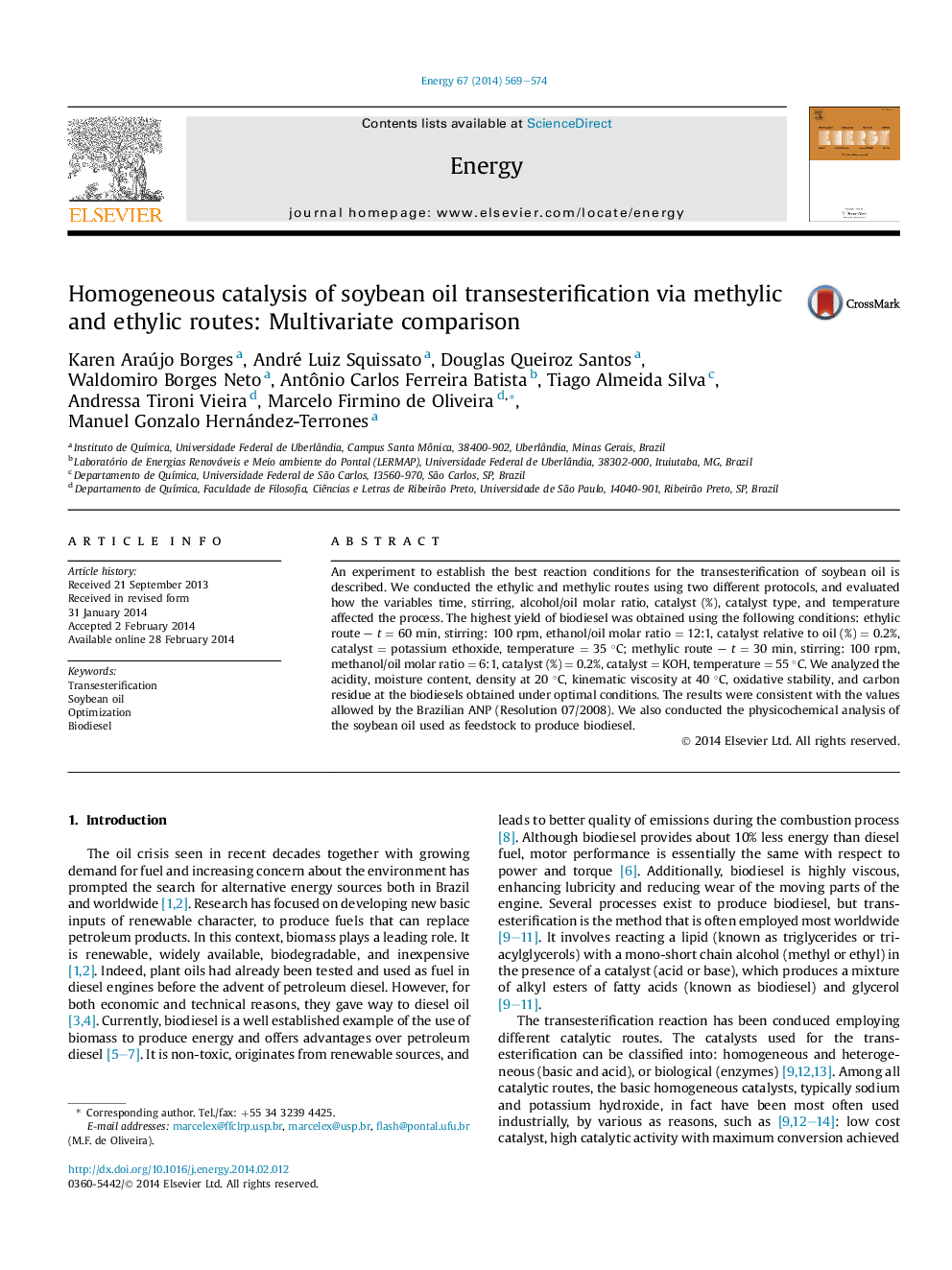| Article ID | Journal | Published Year | Pages | File Type |
|---|---|---|---|---|
| 1732586 | Energy | 2014 | 6 Pages |
•A new optimized route for soybean biodiesel production.•An interesting purpose for vegetable oil recycling.•A contribution to the chemistry of biofuels.
An experiment to establish the best reaction conditions for the transesterification of soybean oil is described. We conducted the ethylic and methylic routes using two different protocols, and evaluated how the variables time, stirring, alcohol/oil molar ratio, catalyst (%), catalyst type, and temperature affected the process. The highest yield of biodiesel was obtained using the following conditions: ethylic route – t = 60 min, stirring: 100 rpm, ethanol/oil molar ratio = 12:1, catalyst relative to oil (%) = 0.2%, catalyst = potassium ethoxide, temperature = 35 °C; methylic route – t = 30 min, stirring: 100 rpm, methanol/oil molar ratio = 6:1, catalyst (%) = 0.2%, catalyst = KOH, temperature = 55 °C. We analyzed the acidity, moisture content, density at 20 °C, kinematic viscosity at 40 °C, oxidative stability, and carbon residue at the biodiesels obtained under optimal conditions. The results were consistent with the values allowed by the Brazilian ANP (Resolution 07/2008). We also conducted the physicochemical analysis of the soybean oil used as feedstock to produce biodiesel.
